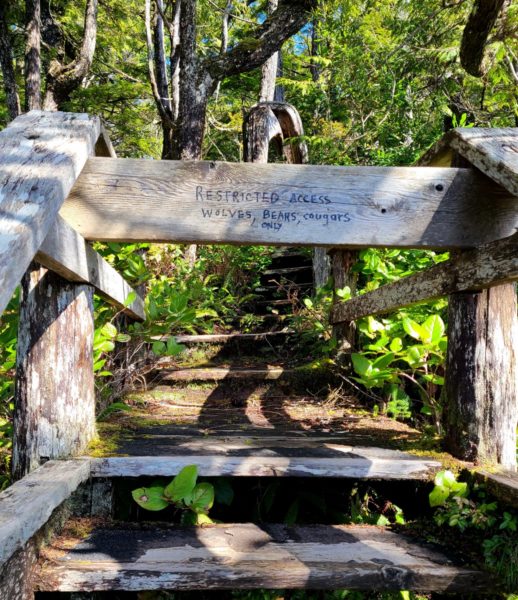The Surprising Lesson in "Alone"

I went to the woods because I wished to live deliberately… and see if I could not learn what it had to teach. Henry David Thoreau
This winter I watched the History Channel’s reality TV show “Alone”, where people get dropped off in the middle of the wilderness to see how long they can survive – whoever remains the longest wins $500K. The contestants are allowed to bring only a selected number of items; such as a tarp, tools of their choice and a photo of their loved ones and are expected to hunt or forage for all of their food. You can learn a lot about what’s most important to humans when you stick them by themselves in the middle of nowhere with nothing to eat.
The contestants are screened from thousands of applicants for their wilderness skills, however, before the contest begins they are debriefed on their particular area, which at the outset seems to be abounding with predators. They also get training on how to use camera equipment, as the show is “self-documented” – the filming has this shaky amateur feel that adds to this feeling of desperate aloneness in the wilderness. Most people watching this from the comfort of their couch have no desire to do this and are probably just fascinated by “what makes these people tick”?
I got right into this show. Part of it was because the first couple seasons were on Northern Vancouver Island, an area I am familiar with from treeplanting. In the aerial shots, I thought it must have taken quite a bit of cropping and possibly Photoshop to hide all the clearcuts. In season four they decided to pair people up – one person was dropped off about 10km away and had to whack his way through the bush to find his partner. To me that was particularly sadistic. At one point the deep voiced narrator referred to this area as “the most forbidding forest in the world” due to the dense salal, steep cliffs and swamps. I thought now imagine it scattered with logging debris so thick you can’t see the ground and having to plant trees in it all day. Although the difference for me was coming home to a hot shower, big meal and bed in usually a logging camp or hotel with other planters. It’s amazing what physical discomfort you can survive if you are fed, clean and not alone at the end of the day.
In “Alone”, people are pretty excited when they get dropped off in the middle of nowhere, some are ecstatic! They welcome this opportunity to test their wilderness skills. However, what seems to catch most of these contestants off guard is how unhappy they begin to feel (starving does not help) despite being in what they thought was their ideal situation. In just a few weeks or less, they start to obsessively think about the people who are closest to them and just want to be with them. In fact, when the worn out and skeletal winner gets picked up (he is made to think he is getting a routine medical check up) his rescuers don’t surprise him with a roast chicken. No, they arrange for his spouse, girlfiend or son or daughter to come gliding in through the forest behind him (tune in the uplifting music), almost giving him a heart attack.
This reminded me of a recent Guardian interview I read with Robert Waldinger, the current head of an 84 year long Harvard study on Adult Development, where they were surprised to discover how consistently important close relationships were to people’s physical health and their happiness. He says: “that’s partly because they help us with the flip side: they don’t just make us happy; they also help us weather the unhappy times, the challenges.” (The Ted Talk linked in the article I thought was interesting too).
Thankfully I don’t think we have to eat slugs and mice in the wilderness for weeks on end to fully appreciate the others in our lives – actually it’s not even recommended. At the beginning of each “Alone” episode it is stated: “this program features trained survival experts – do not attempt this yourself”. However being in nature, with it’s lack of demands and stress inducers, helps us re-calibrate. Sometimes our lives are so full of distractions, superficiality and petty arguments we lose sight of our own true nature and what actually we need most for survival – which apparently is quality close relationships – though food and a shower helps. Spending time with and maintaining our close connections are what even the most hard-cover survivalists on “Alone” discover is the key to living a happy and full life.

